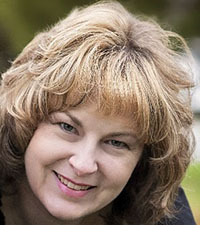COVID-19 shutdowns in 2020 left many churches scrambling to find online alternatives to in-person worship. Now that many have reopened, churches are beginning to rethink the concept of “bigger is better.” Does a smaller audience actually mean death for the church? It’s obvious that life for individuals and ministries may never return to our pre-COVID sense of normal. Why not consider how a few changes and a different perspective can help your church embrace smaller numbers without impacting your overall reach.
1. Fewer people means more room to spread out.
Social distancing is more important than ever. When you have fewer people in the pews, you have more room to spread out. If you aren’t worrying about finding a seat for someone, you can be more concerned about designating appropriate distance in the seating arrangements.
2. Online worshipers count too.
If your church has an online or audio presence, then there are people watching and listening who aren’t necessarily sitting in the church building on Sunday morning. Much attention is given to the number of views, likes, comments, and shares, but sometimes it’s easy to forget that there are real people behind those analytics. If you are discouraged by poor attendance for your in-person services, make sure to consider those who are participating virtually. Shepherding a virtual community of believers is more than just videoing and posting a sermon. Continue to tweak your online services and cultivate relationships in online groups.
3. Small groups are often more intimate.
In addition to giving congregants more room to social distance, smaller churches often have more opportunity to disciple one another. Fewer people means that pastors and leaders can focus on the getting to know the people sitting in the pews. Everyone can learn each other’s name and become more than a face in a crowd. More intimate gatherings can mean more intimate fellowship. Even from six feet apart, people in small groups can more readily share their individual needs and provide personal encouragement to one another.
Like what you're reading and the tools we provide?
4. Without the crowd, visitors stand out.
When you have a room full of people, it’s often hard to pinpoint who is new and who is not. In a smaller group, visitors are easily noticed and given an appropriate welcome. Continued concern over the virus, limited entertainment options and increased social distancing have left many lonely and yearning for new ways to connect. You may actually discover an increase in new faces.
5. Sometimes division leads to multiplication.
If members of your congregation are reluctant to return to church because of COVID-19 concerns, hosting more services with fewer people may be a good option. This will require more work for the pastor and leaders, but the benefits may be worth it. Instead of hosting one service for 200 people, you may host two with 100 each, or four of just 50. When you offer more services, you have more options. You can host one service aimed at caring for older adults or high-risk individuals. You can host a service on a day or night other than Sunday. For churches whose nurseries and Sunday schools have not reopened, you might host one service for families of small children and provide a children’s sermon or resources to engage the kids. By dividing your service opportunities, you may actually multiply your attendance.
COVID-19 has changed a lot of things but it hasn’t changed the gospel message. Jesus not only spoke to the multitudes, he also taught the twelve, ate dinner with families and ministered to individuals. Maybe it’s time to change the focus of the church from packing the pews to meeting the needs of the few. As statesman and philosopher Edmund Burke once said, “The greatest sin is to do nothing because you can only do a little.” In doing “a little,” you might actually discover the church is still doing much.

Tricia K. Brown is a writer, editor, keynote speaker and Bible teacher. In addition to being a wife and mother of four sons, she is the sole proprietor of The Girls Get Together, where she and her team provide women's event programs for churches and other organizations. Her latest book, A Year of Yearning: A 12-Month Devotional to Help You Study God's Word More, is available from Amazon.

